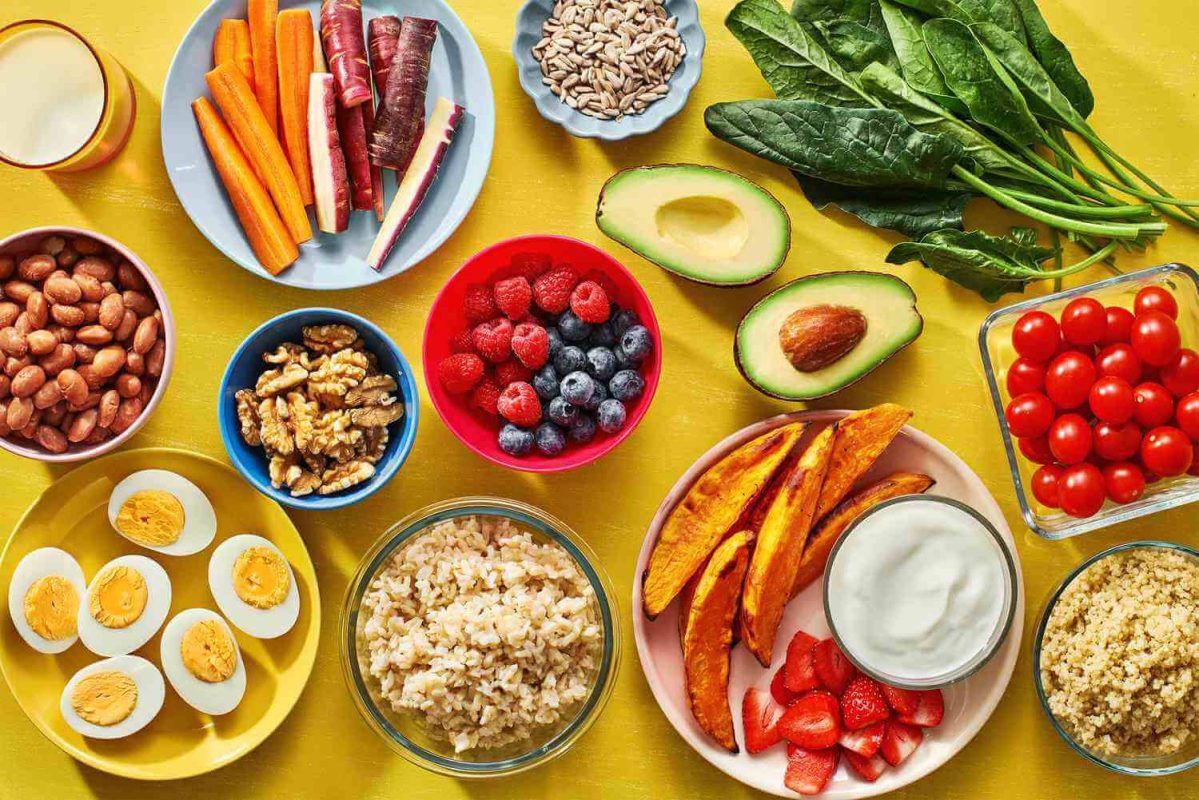World News
Foods to Reduce Inflammation During Cancer Treatment
Cancer treatment can be an incredibly taxing journey for patients, not just because of the disease itself but also due to the physical and emotional toll of treatments such as chemotherapy, radiation, and immunotherapy. One of the most common challenges cancer patients face during treatment is inflammation. Inflammation is a natural response by the body to injury or infection, but when cancer treatments trigger inflammation, it can result in painful side effects, fatigue, and long-term health issues. Therefore, managing inflammation through nutrition is crucial in supporting the body’s healing process during cancer treatment. A balanced, anti-inflammatory diet can help reduce symptoms, improve overall well-being, and even enhance the effectiveness of treatment.
This article aims to provide a comprehensive guide to foods that can reduce inflammation during cancer treatment. Drawing on evidence-based nutrition science, we will explore the foods that have been shown to help manage inflammation, support the immune system, and promote recovery. From fruits and vegetables to fatty fish and spices, we will look at the dietary strategies that can provide relief during one of the most challenging periods of life. Understanding how nutrition interacts with treatment side effects is key to fostering resilience and improving quality of life.
The Role of Inflammation in Cancer Treatment and Recovery
Inflammation is part of the body’s immune response. It’s how the body reacts to harmful stimuli such as infections, injuries, or irritants. Inflammation is often visible as redness, swelling, and warmth, but it can also occur internally without outward symptoms. While acute inflammation can help protect and heal the body, chronic inflammation has been linked to various health problems, including cancer. During cancer treatment, patients often experience increased levels of inflammation, which can result in fatigue, pain, nausea, and reduced appetite.
The role of inflammation in cancer treatment is complex. Treatments like chemotherapy and radiation, while targeting cancer cells, also affect healthy cells, triggering an inflammatory response. This is part of the reason why patients often experience a range of side effects, including gastrointestinal distress, sore mouth and throat, and neurological changes. Inflammation also weakens the body’s ability to fight infections and slows down the healing process.
To combat these inflammatory effects, managing diet becomes an essential strategy. By focusing on foods that reduce inflammation, patients can provide their bodies with the nutritional support they need to heal, restore energy, and enhance overall well-being during treatment. A carefully selected anti-inflammatory diet can help soothe the body’s inflammatory responses, reduce discomfort, and support recovery.

Top Anti-Inflammatory Foods to Include in Your Diet During Cancer Treatment
There are several categories of foods that have been shown to have anti-inflammatory properties and can play a key role in supporting cancer treatment. Incorporating these foods into a daily diet not only helps combat inflammation but also provides vital nutrients to nourish the body.
Fruits and Berries
Berries such as blueberries, strawberries, raspberries, and blackberries are rich in antioxidants, vitamins, and fiber. They contain high levels of polyphenols, which are compounds known for their anti-inflammatory and antioxidant effects. Berries also provide vitamin C, a key nutrient for immune support, which is essential during cancer treatment. The antioxidants in berries help protect the body’s cells from oxidative stress, which can be exacerbated by treatments like chemotherapy.
Other fruits, such as cherries, pomegranates, and citrus fruits, are also excellent choices for reducing inflammation. Pomegranates, in particular, contain compounds that may have cancer-fighting properties and can help reduce oxidative stress in the body. Citrus fruits like oranges, grapefruits, and lemons are packed with vitamin C, which supports immune health and helps the body recover from treatment.
Cruciferous Vegetables
Cruciferous vegetables, such as broccoli, cauliflower, Brussels sprouts, and kale, are rich in compounds that help modulate inflammation. These vegetables are high in fiber, vitamins, and minerals that support immune function. They also contain glucosinolates, which are plant compounds that have been shown to have anti-cancer properties and may help reduce the growth of cancer cells.
These vegetables are especially beneficial for cancer patients because they support detoxification, help lower oxidative stress, and regulate inflammation. Consuming these vegetables in a variety of ways—steamed, roasted, or in soups and smoothies—can provide maximum benefits for reducing inflammation and supporting overall health.
Leafy Greens
Leafy greens like spinach, collard greens, and Swiss chard are packed with antioxidants, vitamins, and anti-inflammatory compounds. These greens are rich in vitamin K, which helps reduce inflammation and supports bone health, an important consideration during cancer treatment. The high fiber content in leafy greens helps maintain digestive health, which can be compromised during treatment.
In addition to their anti-inflammatory properties, leafy greens are high in folate, an essential nutrient that plays a crucial role in cell division and the repair of DNA. This is especially important during cancer treatment when cells are being damaged and need to be repaired.
Healthy Fats: Omega-3s and Olive Oil for Inflammation Reduction
Dietary fats play a key role in managing inflammation, and not all fats are created equal. Some fats, such as those found in processed and fried foods, can contribute to inflammation, while others can reduce it. Healthy fats, particularly omega-3 fatty acids, are some of the best anti-inflammatory fats to include in your diet during cancer treatment.
Omega-3 Fatty Acids
Omega-3 fatty acids, found in fatty fish like salmon, sardines, mackerel, and anchovies, are powerful anti-inflammatory agents. These essential fats help regulate the body’s inflammatory response by reducing the production of pro-inflammatory molecules. Omega-3s have also been shown to support brain health, cardiovascular health, and immune function—all of which are important during cancer treatment.
In addition to fatty fish, omega-3s can also be found in plant-based sources like flaxseeds, chia seeds, walnuts, and hemp seeds. For those who do not consume fish, these plant-based sources of omega-3s can help provide the necessary anti-inflammatory benefits.
Olive Oil
Olive oil, especially extra virgin olive oil, is another excellent source of healthy fats that can help combat inflammation. It contains oleocanthal, a compound that has been shown to have anti-inflammatory properties similar to non-steroidal anti-inflammatory drugs (NSAIDs). Olive oil also contains polyphenols, which are antioxidants that protect cells from oxidative damage.
Incorporating olive oil into the diet is simple—use it as a base for salad dressings, drizzle it over roasted vegetables, or add it to soups and stews. Olive oil provides a mild, rich flavor while offering a host of health benefits.

Herbs and Spices: Natural Anti-Inflammatory Powerhouses
Herbs and spices are not just flavorful additions to your meals—they can also have powerful anti-inflammatory effects. Many common herbs and spices contain bioactive compounds that help reduce inflammation in the body. Two of the most well-known and studied herbs for inflammation reduction are turmeric and ginger, but others, such as garlic, cinnamon, and cayenne pepper, also have potent anti-inflammatory properties.
Turmeric and Curcumin
Turmeric, the bright yellow spice commonly used in Indian and Middle Eastern cuisine, contains curcumin, a compound that has powerful anti-inflammatory and antioxidant effects. Studies have shown that curcumin can help reduce the inflammation associated with cancer treatment, particularly in the areas of joint pain, digestive discomfort, and swelling. Turmeric is also thought to have anti-cancer properties, helping to prevent cancer cell growth and metastasis.
To get the most out of turmeric, consider adding it to curries, soups, and smoothies, or mix it with black pepper to enhance its absorption in the body. For those who may find it difficult to incorporate turmeric into their daily meals, curcumin supplements are also available and may offer additional anti-inflammatory benefits.
Ginger
Ginger is another powerful anti-inflammatory herb that has long been used in traditional medicine to treat nausea, a common side effect of cancer treatment. It is also known to reduce pain and inflammation in the body. The compounds in ginger, such as gingerol, have been shown to inhibit inflammatory pathways, which can help reduce the systemic inflammation caused by cancer treatments.
Incorporating fresh ginger into tea, smoothies, or stir-fries can help reduce nausea, pain, and overall inflammation. Ginger supplements are also available for those who wish to take advantage of its therapeutic benefits.
A Holistic Approach to Reducing Inflammation: The Mediterranean Diet and Lifestyle
One of the best approaches to reducing inflammation during cancer treatment is adopting a balanced, nutrient-dense diet. The Mediterranean diet, which emphasizes plant-based foods, healthy fats, whole grains, and lean proteins, is one of the most well-researched diets for managing inflammation and promoting overall health.
The Mediterranean Diet for Inflammation
The Mediterranean diet is rich in fruits, vegetables, whole grains, nuts, seeds, and legumes, with a focus on healthy fats like olive oil. It also includes moderate amounts of fish, poultry, and dairy, while minimizing red meat and processed foods. The diet is known for its anti-inflammatory properties, thanks to its emphasis on antioxidant-rich foods and healthy fats.
Studies have shown that the Mediterranean diet can reduce chronic inflammation, lower oxidative stress, and improve immune function, making it an ideal choice for cancer patients looking to reduce inflammation during treatment. The diet’s focus on whole, unprocessed foods also ensures that patients get the necessary vitamins, minerals, and fiber to support healing and recovery.
Lifestyle Factors: Exercise and Stress Management
In addition to dietary changes, certain lifestyle factors can also play a crucial role in managing inflammation. Regular physical activity, even light exercise like walking, has been shown to reduce inflammation and improve overall well-being. Managing stress through relaxation techniques like yoga, meditation, and mindfulness can also help lower inflammation, improve mood, and promote recovery.
Conclusion
Reducing inflammation during cancer treatment is vital for minimizing side effects, improving overall health, and supporting recovery. By incorporating a variety of anti-inflammatory foods, such as fruits, vegetables, healthy fats, herbs, and spices, cancer patients can improve their ability to manage the challenges of treatment. A holistic approach to nutrition—combined with regular exercise, stress management, and a positive mindset—can provide the body with the support it needs during this difficult journey.
Cancer treatment is never easy, but by making smart dietary choices and adopting a healthy lifestyle, patients can take an active role in reducing inflammation, boosting their immune system, and improving their quality of life. Through careful attention to nutrition, patients can feel empowered, supported, and hopeful as they navigate this challenging chapter.
From Ecomhao

